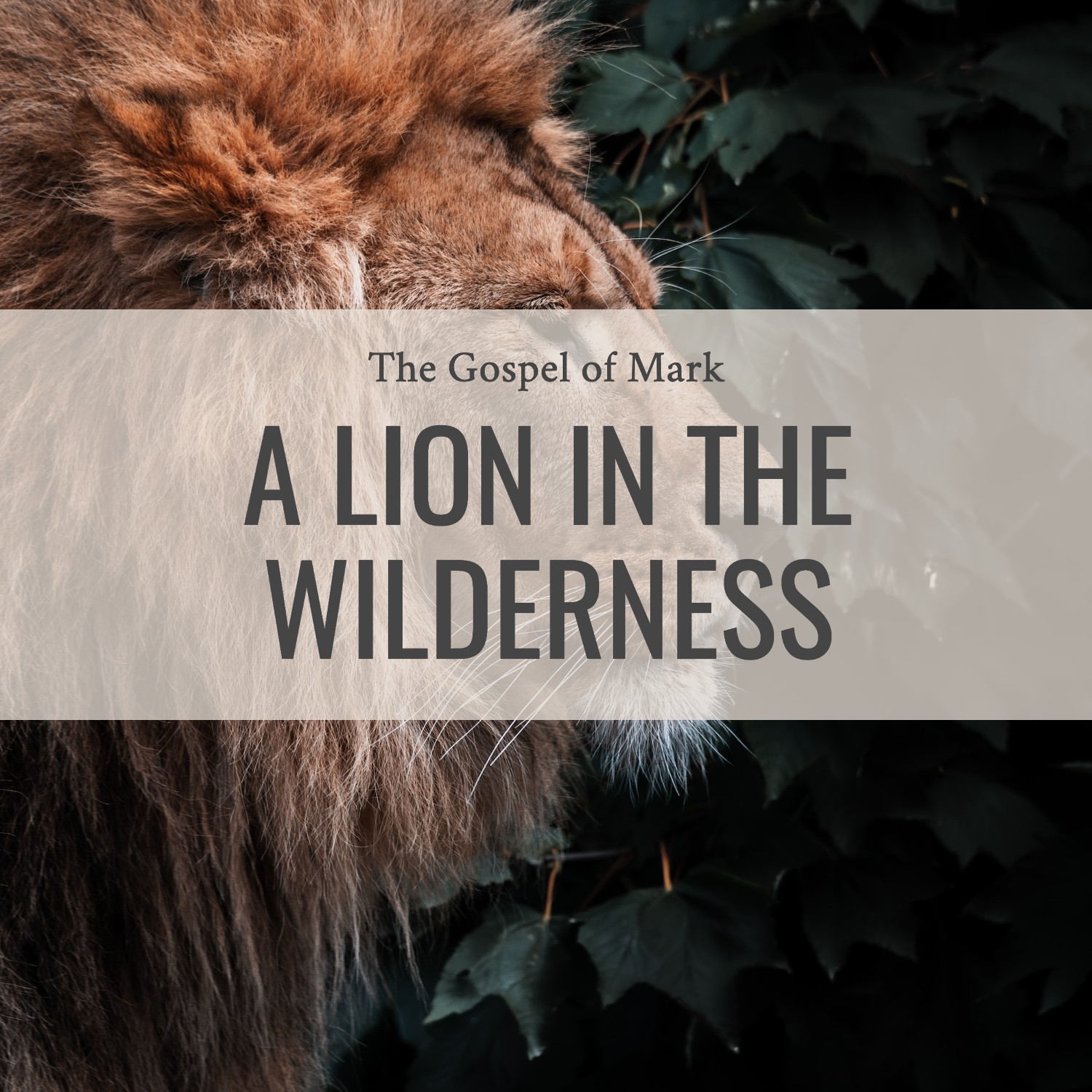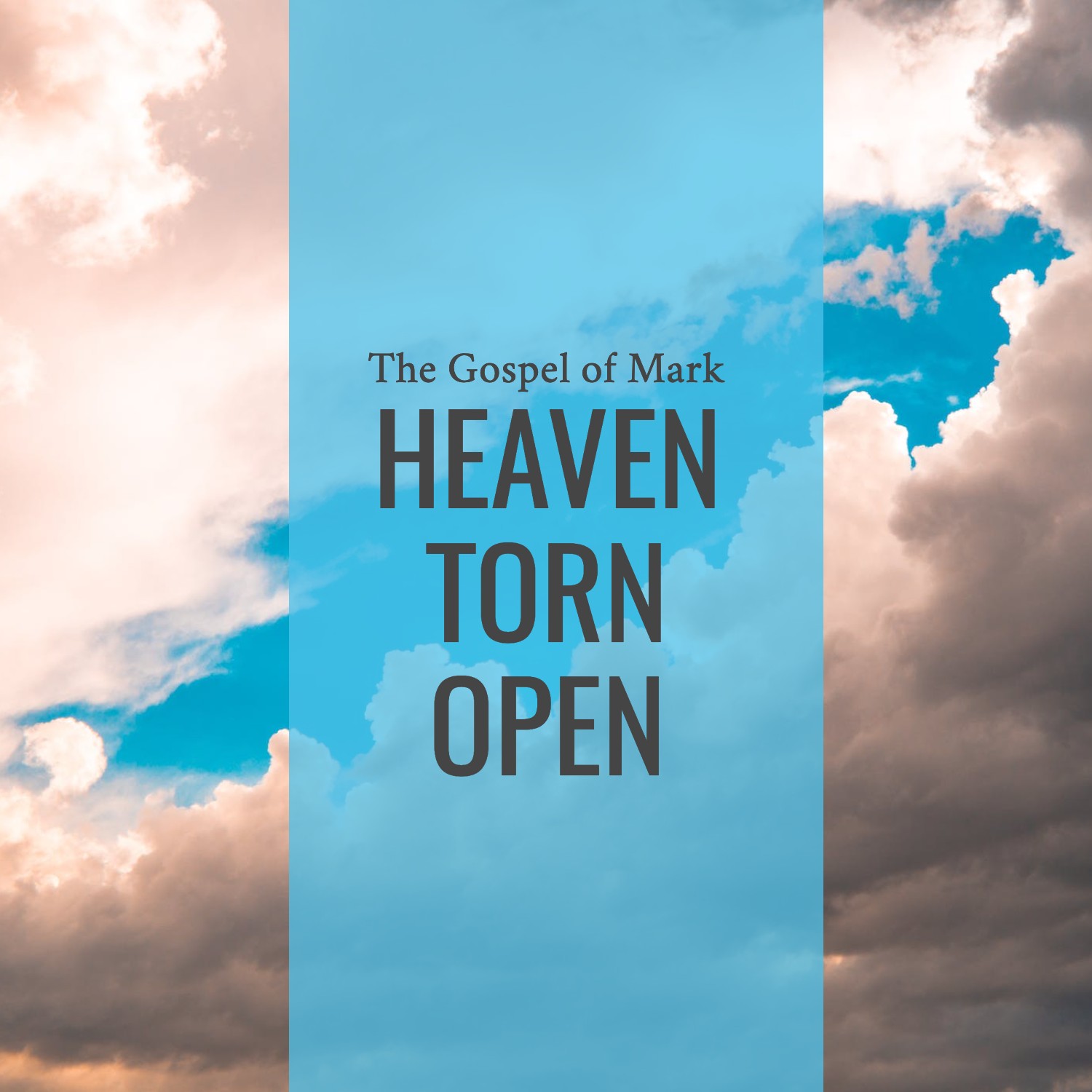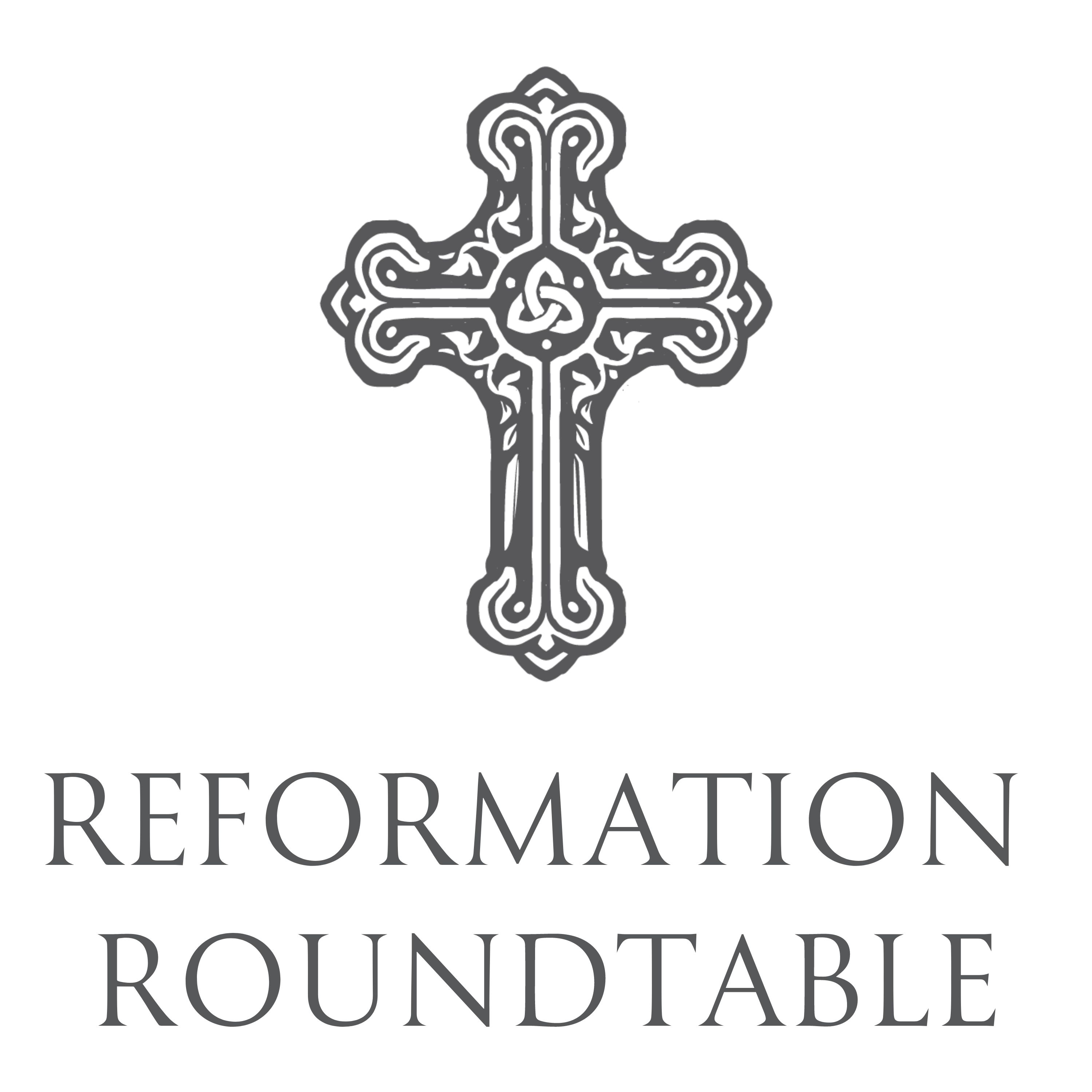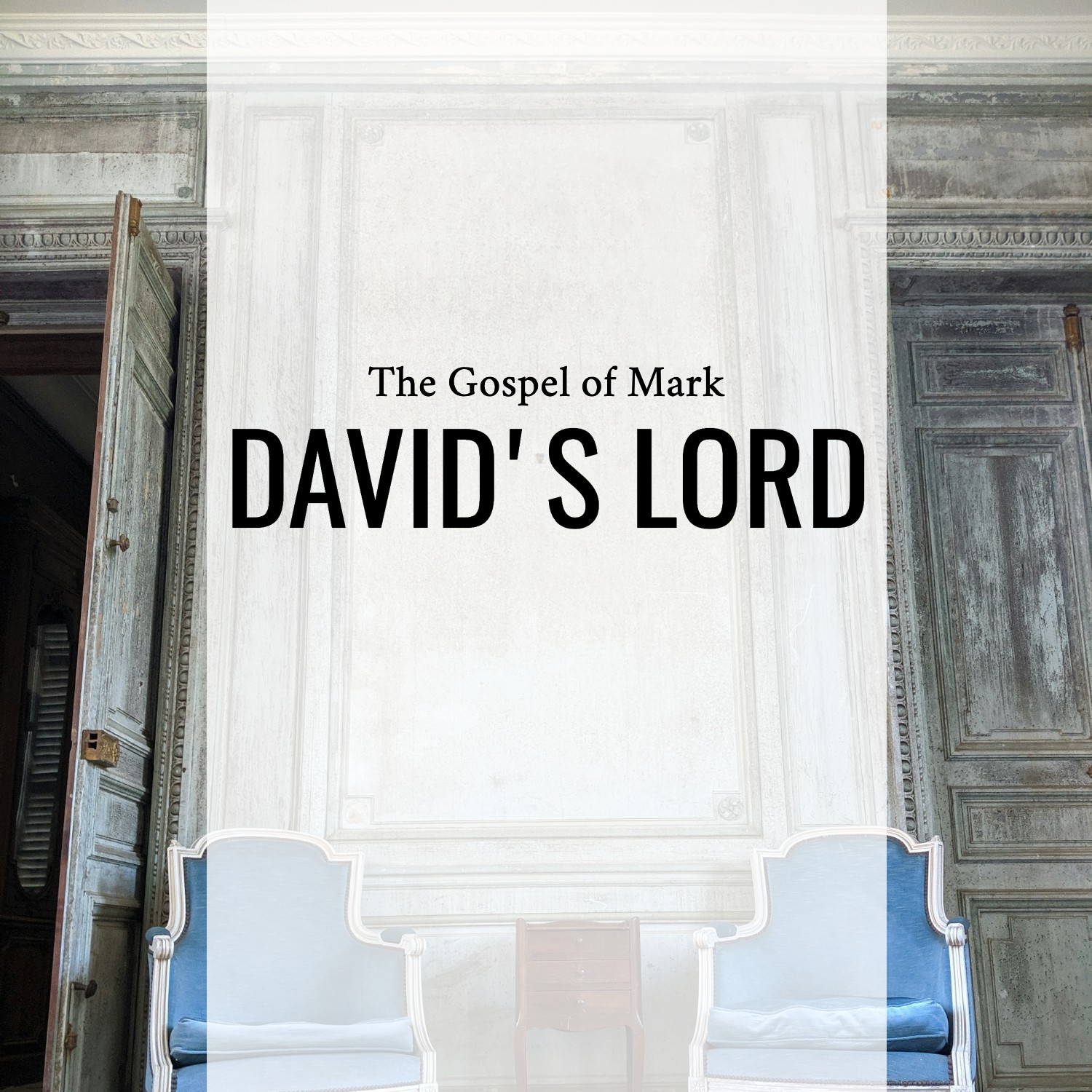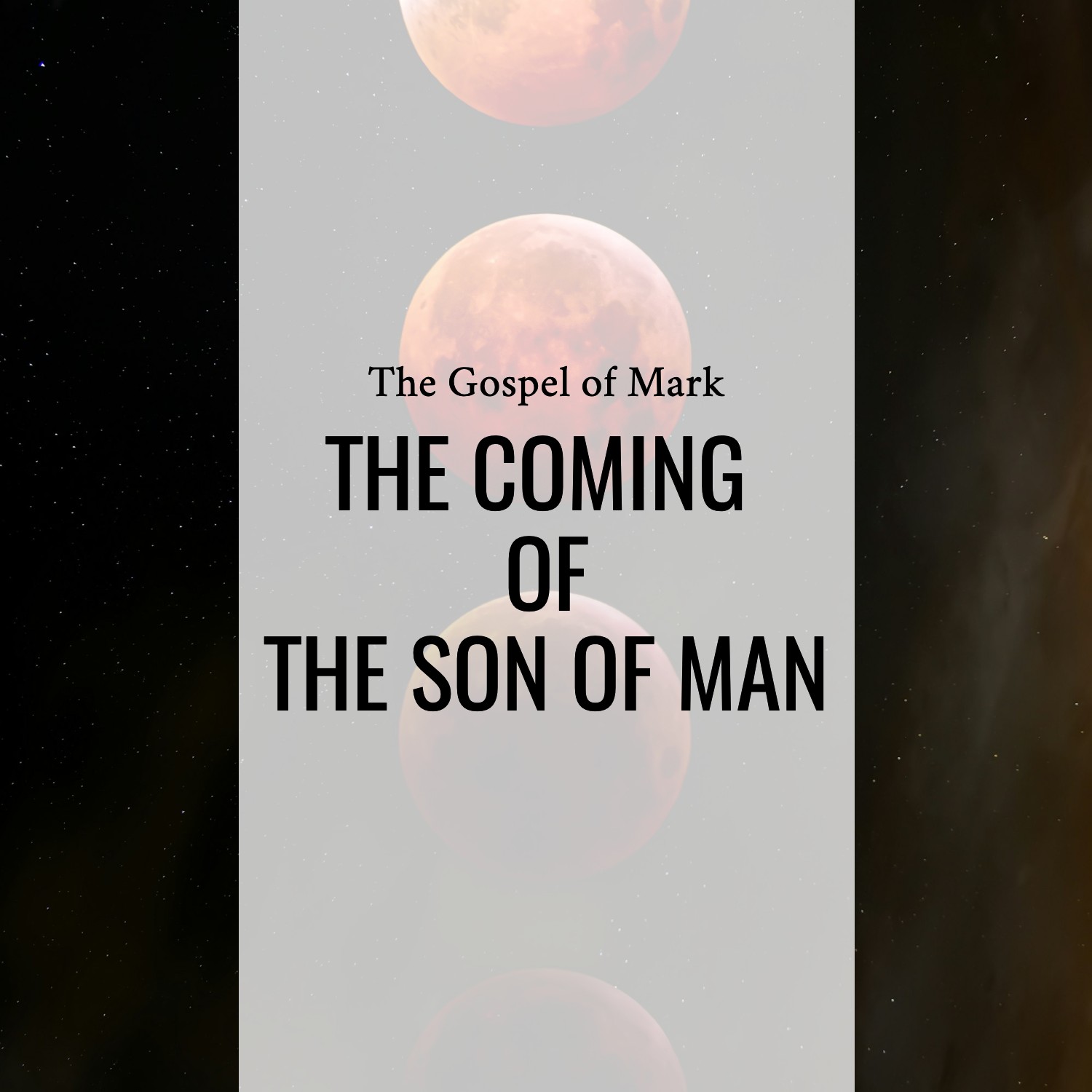Episode Transcript
A Lion In The Wilderness
Sunday, April 2nd, 2023
Christ Covenant Church – Centralia, WA
Mark 1:1-3
The beginning of the gospel of Jesus Christ, the Son of God; 2 As it is written in the prophets, Behold, I send my messenger before thy face, which shall prepare thy way before thee. 3 The voice of one crying in the wilderness, Prepare ye the way of the Lord, make his paths straight.
Prayer
Father as we begin this Gospel of Mark, we ask that you would teach us by Your Holy Spirit, teach us to walk in the footsteps of Christ, and prepare us for that final Day of the Lord. We ask this in Jesus name, Amen.
Introduction
What does the glory of God look like? If you were Isaiah, or Ezekiel, or Moses, what would you have seen when the glory of the invisible God was made manifest to human eyes? What does the glory of God look like?
In Isaiah 6, the prophet says, “I saw the Lord sitting upon a throne, high and lifted up, and his train filled the temple. 2 Above it stood the seraphims: each one had six wings; with two he covered his face, and with two he covered his feet, and with two he did fly. 3 And one cried unto another, and said, Holy, holy, holy, is the Lord of hosts: The whole earth is full of his glory.
In Ezekiel 1, the prophet Ezekiel sees what he calls, “the appearance of the likeness of the glory of the Lord” (Ezek. 1:28). And in that appearance, he also sees a throne and a chariot, with wheels within wheels, and four living creatures called cherubim that have four faces. Ezekiel 1:10, 26 says, “As for the likeness of their faces, they four had the face of a man, and the face of a lion, and the face of an ox, and the face of an eagle… And above the firmament that was over their heads was the likeness of a throne, as the appearance of a sapphire stone: and upon the likeness of the throne was the likeness as the appearance of a man above upon it.”
What does the glory of God look like? It looks like a man upon a throne, with seraphim above and cherubim below.But who is this man? Who is this one sitting upon the throne?
Well that is what the Gospel of Mark is going to unveil. What is only a shadowy outline and a dark mystery in the Old Testament, the four gospels come to reveal, and each gospel has something distinct to add to our vision of God, to paint for us a portrait of who it is who sits upon that fiery throne.
In the history of the church, each of the four gospels came to be associated with one of the four faces of the cherubim. There is debate about which face goes with which, but as I take it: Matthew connects with Ox, Mark with the Lion, Luke with the Eagle, and John with the Man. To give you one example of how this links up:
The Ox is a Mosaic/priestly animal (it represented them in the sacrificial system), and in Matthew Jesus is presented as a new Moses, a new Israel, He is tempted for 40 days, he gives a sermon on mount, Matthew makes many parallels between the history of Israel and the life of Jesus. As the first gospel in the canon, Matthew mirrors the first phase of Old Testament History, from Genesis-Joshua.
Mark then is the gospel of the Lion. The lion is a kingly animal, andas we will see throughout this sermon series, Mark intentionally draws parallels between Jesus and David. Jesus is a new David, the true lion from the line of Judah, who comes to reunite Israel and reign as king.
So if you want understand the Gospel of Mark, you have to know the story of David.
You need to know that he was anointed as king when someone else was on the throne, Saul.
And that King Saul hunted him down and pursued him in the wilderness. David had to live among Philistines, as an exile from his own kingdom.
While in the wilderness, David amasses an army. He has mighty men, disciples, who follow Him and swear allegiance to him.
And only after the death of Saul, does David become king of all Israel, choosing Jerusalem as the new capital and holy city.
Mark portrays Jesus as a new and better David, as a lion roaring in the wilderness, fighting the forces of darkness, destined for Jerusalem. But as we will see, that royal path is not an easy one, it is indeed a road to crucifixion. That is what a true king does for His people.
So that is the Gospel of Mark in miniature, a lion roaring in the wilderness making his way to the throne in Jerusalem, and in these opening 3 verses we are given the final cause, or purpose, for which this gospel was written. So let us turn now to our text and see what that is.
Verse 1
The beginning of the gospel of Jesus Christ, the Son of God;
Mark begins by telling us the single most important truth there is, that Jesus Christ is the Son of God.
The name Jesus literally means “YHWH Saves.” In Greek it is Ἰησοῦ, which translates the Hebrew name יְהוֹשׁוּעַ (Joshua), which means “YHWH is salvation, or Jehovah Saves.”
So the name of Jesus is itself a confession of faith, a confession that the God of Abraham, Isaac, and Jacob is salvation.
Christ (Χριστοῦ) is not a last name but a title. It translates the Hebrew word מָשִׁיחַ, Messiah, which is an anointed one. Who gets anointed in the Old Testament? Priests and Kings. Priests and Kings were anointed with oil, they were set apart for a sacred work, and in Jesus both the priestly and kingly office is fulfilled, just as it was prophesied in Zechariah 6.
In Zechariah 6, the high priest is named Joshua. And this is what God says about him 500 years before Jesus comes along (Zech. 6:11-13):
Then take silver and gold, and make crowns, and set them upon the head of Joshua the son of Josedech, the high priest; 12 And speak unto him, saying, Thus speaketh the Lord of hosts, saying,
Behold the man whose name is The BRANCH;
And he shall grow up out of his place,
And he shall build the temple of the Lord:
13 Even he shall build the temple of the Lord;
And he shall bear the glory,
And shall sit and rule upon his throne;
And he shall be a priest upon his throne:
And the counsel of peace shall be between them both.
This is a prophecy of the union between the priestly and kingly offices. What formerly belonged to two different men, would now belong to one man in Joshua. And it was understood that the priest would wear that kingly crown as a steward until the Messiah, the Christ, the son of David would come.
So Jesus is that Christ, He is the one who forever unites the priestly and kingly offices.
Now so far, the name Jesus and the title Christ mightonly refer to a great human being. A great king like David, or a great priest like Joshua. But Mark gives us the punchline up front, and tells us that this is not merely a human being, this is the Son of God, and everything that follows in this book is a testimony to that truth, it is gospel.
The gospel is not only justification by faith, or forgiveness of sins, or hope of eternal life, those things are of course essential to it, but the gospel is bigger than that, it is something new in the history of the world. It is the good news that God has become man in Jesus Christ. And therefore everything He does is gospel. From the first chapter of Matthew to the last chapter of John, all of this is good news that Jesus Christ is the Son of God.
It is especially the good news that a new king has come. A king who exemplifies everything we pray about and sing in the Psalms.
He is a King who will judge justly, “who loveth judgment and dost establish equity, that executest judgment and righteousness in Jacob” (Ps. 99:4).
He is a King before whom all the earth trembles (Ps. 99:1), who makes the nations to be glad, who has “Clouds and darkness round about him: Righteousness and judgment are the habitation of his throne. A fire goeth before him, And burneth up his enemies round about” (Ps. 97:1-3).
This is the one who Isaiah saw. The one who Ezekiel and Moses and the prophets beheld. He is the one that David wrote about in the Psalms.
“The beginning of the gospel of Jesus Christ, the Son of God.” The rest of the book is just an elaboration of this truth, and Mark is going to prove that; he is going to demonstrate who Jesus is in innumerable ways.
And yet as we will see, it is not until the crucifixion, until Jesus is hanging from the cross and breathes his last, that a Roman centurion says, “Truly this man was the Son of God.” No other human being in the entire gospel makes that confession. And so Mark has a purpose in writing this gospel. And it is to make us to say with the Roman centurion, “Truly this man was the Son of God.”
So if you get nothing else from this sermon series, get that. Who is Jesus? He is the Son of God.
So that’s the thesis for this book, this whole sermon series, and in verses 2-3 we are given a riddle to solve about the identity of Jesus.
Verses 2-3
2 As it is written in the prophets, Behold, I send my messenger before thy face, which shall prepare thy way before thee. 3 The voice of one crying in the wilderness, Prepare ye the way of the Lord, make his paths straight.
Here we have the first proof of who Jesus is. And it is given to us in the form of three Old Testament quotations that have been woven together and slightly modified. And if we study how Mark does this, how he interprets the Old Testament, we can gain insight into who Jesus is and what the rest of book is about.
So I have printed in your bulletin the three different Old Testament quotations that Mark weaves together. So let’s look at them one at a time and see how Mark uses them.
#1 – The first quotation is from Exodus 23:20…
Which is where the Law section that began with the Ten Commandments in Exodus 20, ends.
So God has just told Israel, here’s all the things you need to do as a nation, this is what justice and righteousness looks like, and then immediately after he gives them this warning:
20 Behold, I send an Angel before thee, to keep thee in the way, and to bring thee into the place which I have prepared. 21 Beware of him, and obey his voice, provoke him not; for he will not pardon your transgressions: for my name is in him.22 But if thou shalt indeed obey his voice, and do all that I speak; then I will be an enemy unto thine enemies, and an adversary unto thine adversaries. 23 For mine Angel shall go before thee, and bring thee in unto the Amorites, and the Hittites, and the Perizzites, and the Canaanites, and the Hivites, and the Jebusites: and I will cut them off. (Exodus 23:20-23)
So when God says, “Behold, I send an Angel before thee,” He is saying, “prepare to enter the promised land, follow my Angel, He is going to do battle and cut off enemies of the land.”
In both Greek and Hebrew, the word angel and messenger is the same. So it is ambiguous whether it is a human messenger, or a divine messenger (what we call an angel), and Mark seems to playing with that ambiguity.
So that’s the first quotation that Mark cites in verse 2, “Behold, I send my messenger before thy face.” And the context is they are in the wilderness and preparing to enter to the promised land.
#2 – The second quotation is from Malachi 3:1…
Which is itself a quotation from Exodus 23:20, but in a new context. Malachi 3 describes two different messengers. There is a forerunner who prepares the way, and then there is “the Lord, the messenger of the covenant who comes after.” So listen to Malachi 3:1-3:
Behold, I will send my messenger, and he shall prepare the way before me:
And the Lord, whom ye seek, shall suddenly come to his temple,
Even the messenger of the covenant, whom ye delight in:
Behold, he shall come, saith the Lord of hosts.
2 But who may abide the day of his coming?
And who shall stand when he appeareth?
For he is like a refiner’s fire, and like fullers’ soap:
3 And he shall sit as a refiner and purifier of silver:
And he shall purify the sons of Levi, and purge them as gold and silver,
That they may offer unto the Lord an offering in righteousness.
So there are two messengers, and Mark is going to identify the first messenger as John the Baptist, and if John is the first messenger, then who is the messenger of the covenant? Who is the Lord who comes like a refiner’s fire? It’s Jesus. Mark is identifying Jesus with the Lord. Jesus is the God who comes like a refiner’s fire to purify Israel. So when we see Jesus casting out demons, healing the sick, confronting the Pharisees, you are meant to have Exodus 23:20 and Malachi 3 running in your mind.
This is the angel cutting off enemies, this is the refiner’s fire purifying the land.
#3 – The third quotation comes from Isaiah 40:3.
And Isaiah looms large over the gospel of Mark. When in verse 1 it says, “the beginning of the gospel,” that word gospel draws much of its meaning from Isaiah 52:7, which says, “How beautiful upon the mountains are the feet of him that bringeth good tidings, that publisheth peace; That bringeth good tidings of good, that publisheth salvation; That saith unto Zion, Thy God reigneth!”
If you were to ask Isaiah, “What is the gospel?” He would say, it is the good news that “Thy God reigns.”
And so Mark sets up his gospel with Isaiah and Malachi and Exodus in the foreground. And he quotes in verse 3 from Isaiah 40, which begins this way:
Comfort ye, comfort ye my people, saith your God.
2 Speak ye comfortably to Jerusalem, and cry unto her,
That her warfare is accomplished,
That her iniquity is pardoned:
For she hath received of the Lord’s hand double for all her sins.
3 The voice of him that crieth in the wilderness, Prepare ye the way of the Lord,
Make straight in the desert a highway for our God.
4 Every valley shall be exalted,
And every mountain and hill shall be made low:
And the crooked shall be made straight,
And the rough places plain:
5 And the glory of the Lord shall be revealed,
And all flesh shall see it together:
For the mouth of the Lord hath spoken it.
The promise of the gospel is that God Himself would come. His glory would be revealed and He would reign as King from Zion.
And Mark is saying that Jesus is that God, He is that King, who Isaiah spoke of. What does the glory of God look like? It looks like Jesus Christ.
And so Mark, quoting Isaiah 40:3 says, “The voice of one crying in the wilderness, Prepare ye the way of the Lord, make his paths straight.”
Here is one of the modifications Mark makes to Isaiah. In Isaiah, the paths are the paths of “our God,” and Mark changes it to “his paths,” with the “his” referring to Jesus. So Mark is saying that the paths of God are the paths where Jesus walks. And the place where that path, that way of the Lord begins, is in the wilderness. With John, crying out, “prepare ye the way of the Lord, make his paths straight.”
Pulling It All Together
What is the cumulative force of these three quotations, and what relevance are they to us?
It means that Jesus is the beginning of new exodus.
The gospel is a new beginning for Israel, a new beginning for the Gentiles, and a new beginning for humanity. And if Jesus is leading a new Exodus, that means Jerusalem has become Egypt. The promised land has become a land of oppression. And the place that God once led his people to, the land of Canaan, must be reconquered. And so the gospel begins in the wilderness.
The wilderness is the place where God prepares men and nations for conquest. It is the place of testing and the staging ground for holy war.
The book of Numbers is all about the turning of Israel into a heavenly army, that’s what those numbers those censuses are all about, counting the troops. The title of the book of Numbers in the Hebrew Bible is במדבר, “In The Wilderness.”
The wilderness is where God rallies the troops. It is where he turns princes into kings, it is where he turns shepherds into prophets, and Levites into priests.
It was where Moses was prepared before he went down to Egypt. It was where Joshua was trained before he conquered 31 kings. It was where David was persecuted before ascending the throne. And perhaps most importantly, it is the place where worship is established, is it where the Tabernacle is built, and God dwells with His people.
The wilderness, the deserted places, is where God prepares the church for conquest, and it is here that Mark’s gospel begins.
So what does this mean for us today?
It means that if you want to follow Jesus, you’re going to have to live in the wilderness for awhile. Whatever that looks like for you.
You must leave what is familiar in Egypt, in the city, the leeks and onions and bondage, so that you can be purified and turned into a tabernacle for God. If you want to become truly free, if you want to become who God made you to be, it is going to require some time in the wilderness.
There are no great men, there are no great women, who did not endure many trials in deserted places. Hebrews 13 says, “Therefore Jesus also, that He might sanctify the people with His own blood, suffered outside the gate. 13 Therefore let us go forth to Him, outside the camp, bearing His reproach. 14 For here we have no continuing city, but we seek the one to come.”
What the wilderness means is separation from the world, alienation from sinful society. It means being made into someone else so that the world hates you, seeing that as Jesus says, you live in the world, but are not of it (John 17:14-18).
If you want to follow Jesus, you need get comfortable with the world hating you. That’s the practical implication of Jesus Christ is the Son of God.
Conclusion
Paul says in 2 Timothy 3:12, “all who desire to live a godly life in Christ Jesus will be persecuted,” which means….
There is no easy way to attain to glory. All of us are going to suffer, all of us are going to die, all must endure various seasons of hardness. But the good news of the gospel is that in Jesus Christ, God gives us Himself. He gives us His Spirit, He gives us His life, He gives us whatever we need to endure the wilderness and enter triumphantly into the New Jerusalem.
Christ opens for us the kingdom of heaven, and so no matter how hard or how grievous or how weary this life may get, resurrection life is rushing toward you and you cannot stop it! Every day is a step closer to glory, to a new heaven and new earth in which righteousness dwells, and if we endure, if we are faithful unto death, Jesus says in Revelation, “I will give thee the crown of life.” “I will give thee the morning star.” “I will confess his name before my Father, and before his angels. He that hath an ear, let him hear what the Spirit saith unto the churches.”
In the name of the Father, and the Son, and the Holy Spirit. Amen.
